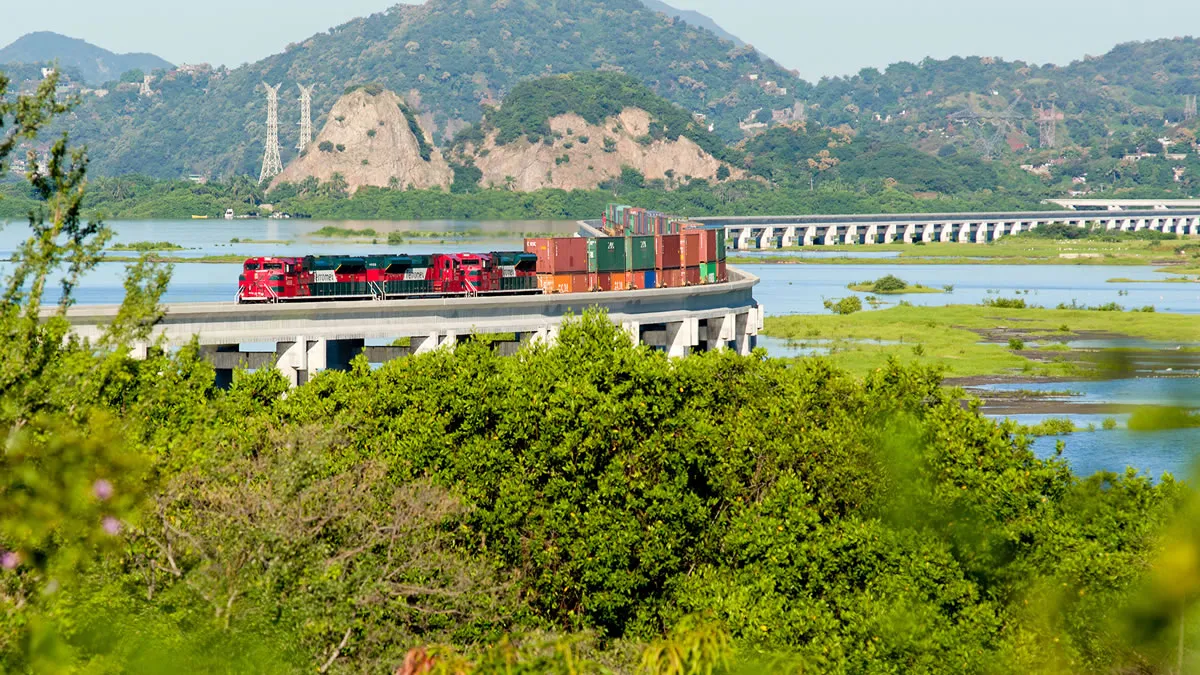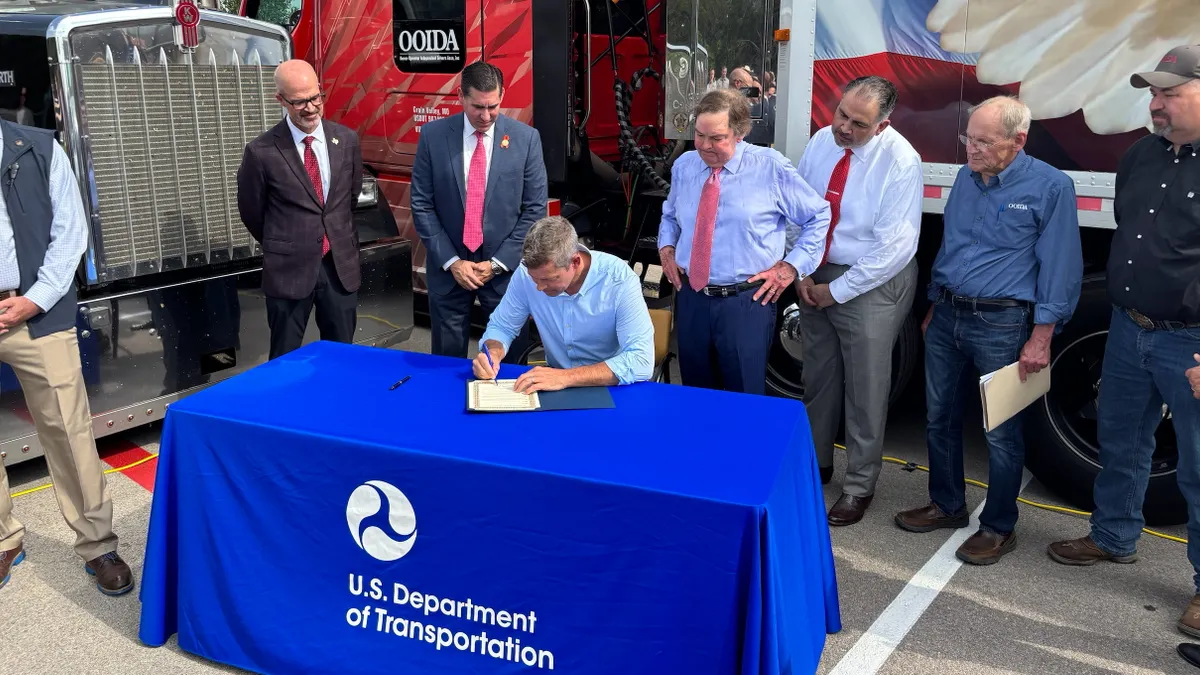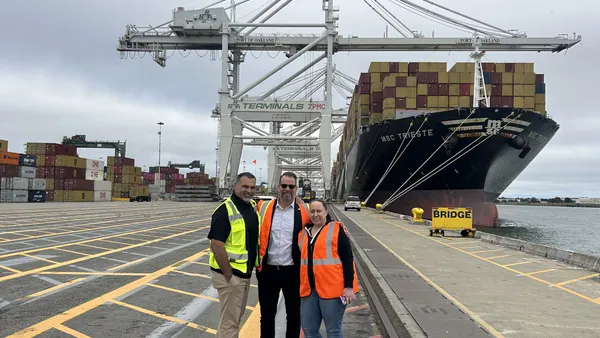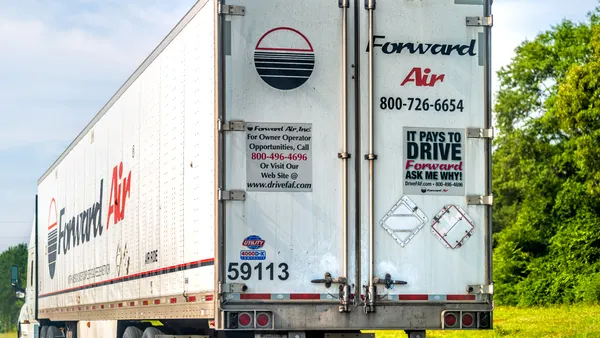Dive Brief:
- J.B. Hunt, BNSF and Grupo México Transportes are planning to offer shippers a new U.S.-Mexico intermodal service as of Jan. 1, promising faster shipping speeds, according to a Monday news release.
- The new service will leverage rail networks in both countries, with Grupo México Transportes operating trains six days a week between three major markets in Mexico — Monterrey, Silao-Bajio and Pantaco-Mexico City — and interchange with BNSF at the border crossing in Eagle Pass, Texas.
- The intermodal service will be one day faster than the existing service from Monterrey to Chicago, the transport providers said in the joint release. An alternative route through El Paso, Texas, will also be available.
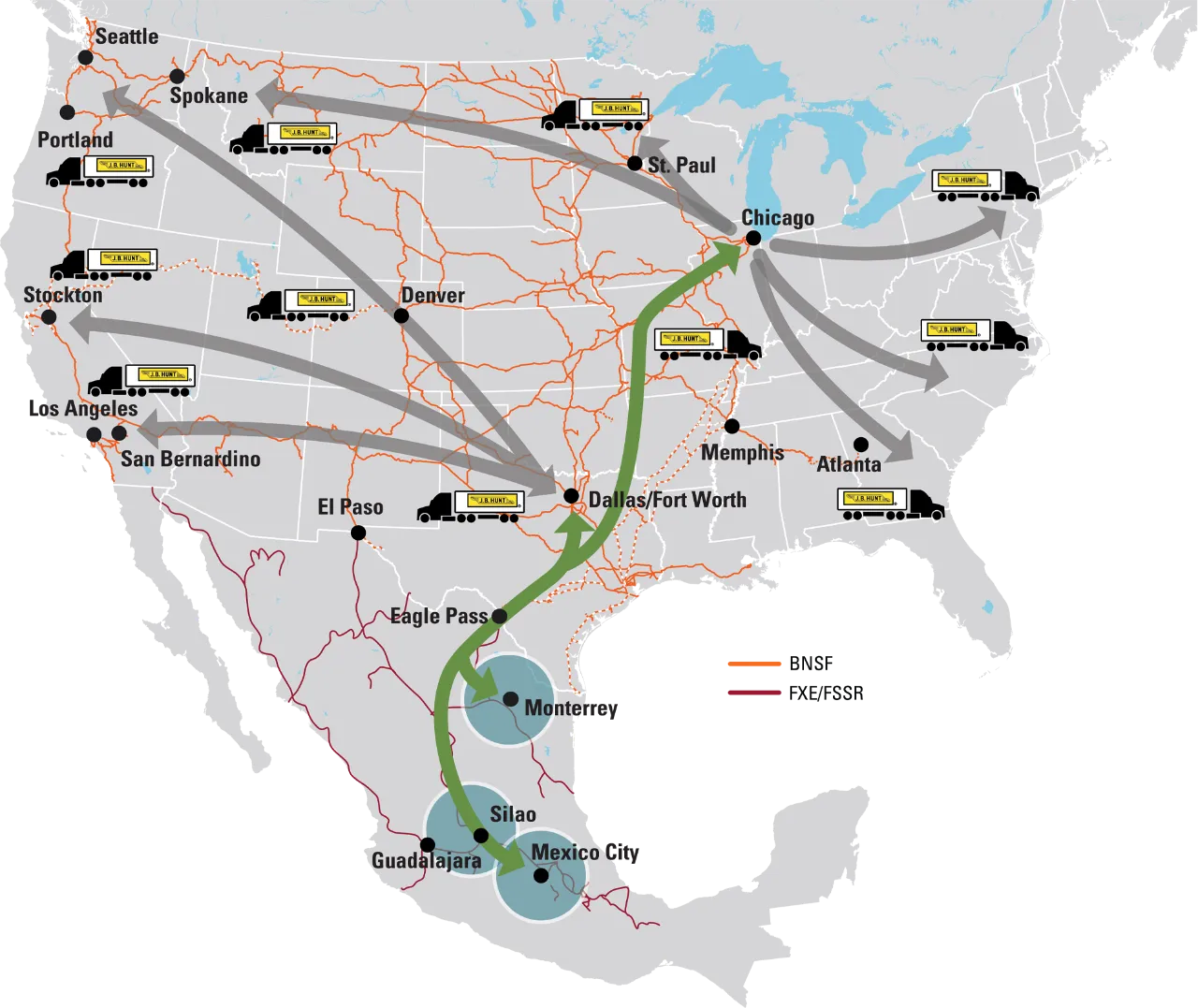
Dive Insight:
BNSF is entering the race to capture market share for U.S.-Mexico shipments alongside its longtime trucking partner, J.B. Hunt.
“By utilizing the capacity and expertise of the largest intermodal railroad in the U.S., the largest railroad in Mexico, and the largest domestic intermodal carrier, this product will seamlessly connect the North American intermodal network,” BNSF President and CEO Katie Farmer said in a statement.
The service addition builds on other work J.B. Hunt and BNSF have done over the past year to bolster their networks. Just last week, the two transport providers announced they had created an “Intermodal Innovation Center” in Fort Worth, Texas, where staff from the two companies would sit side-by-side to offer shippers dedicated support for loads using their newly launched Quantum premium service.
While the carriers did not say in the release whether loads shipped using the new U.S.-Mexico service would qualify for Quantum, the service announcement promised shipments would receive dedicated support from BNSF staff. The carriers also advertised the new services’ expanded reach and customs-processing ease as competitive advantages that could lure shippers.
“This new service offering will provide resilient, cross-border solutions that give our customers optionality to support their growing supply chain needs in Mexico," J.B. Hunt CEO John Roberts said in a statement.
J.B. Hunt last week projected up to 11 million loads of freight could potentially be converted to intermodal shipments, citing an analysis of its own transaction data. In light of that, the trucking giant has been working to grow its intermodal fleet to 150,000 containers over the next three to five years. It had around 117,000 as of Q3.
Railroads also have been racing to capture market share for the growing number of products shipped between Mexico and the U.S. by adding a bevvy of intermodal services.
The race started after Canadian Pacific and Kansas City Southern formally combined their networks into CPKC this year, creating the first single-line railroad operating across the U.S., Canada and Mexico. Within months, the railroad and its rivals had created multiple competing intermodal services connecting markets in Mexico to U.S. hubs.
With the latest intermodal service announcement, Grupo México Transportes has now collaborated this year to create U.S.-Mexico routes with every other Class I railroad in North America, except for CPKC.
“GMXT is ready to support the freight demand growth that nearshoring presents with North America by providing flexible and top-notch rail services to our customers,” GMXT CEO Fernando López said in a statement.
This story was republished from our sister publication, Supply Chain Dive. Sign up here.



